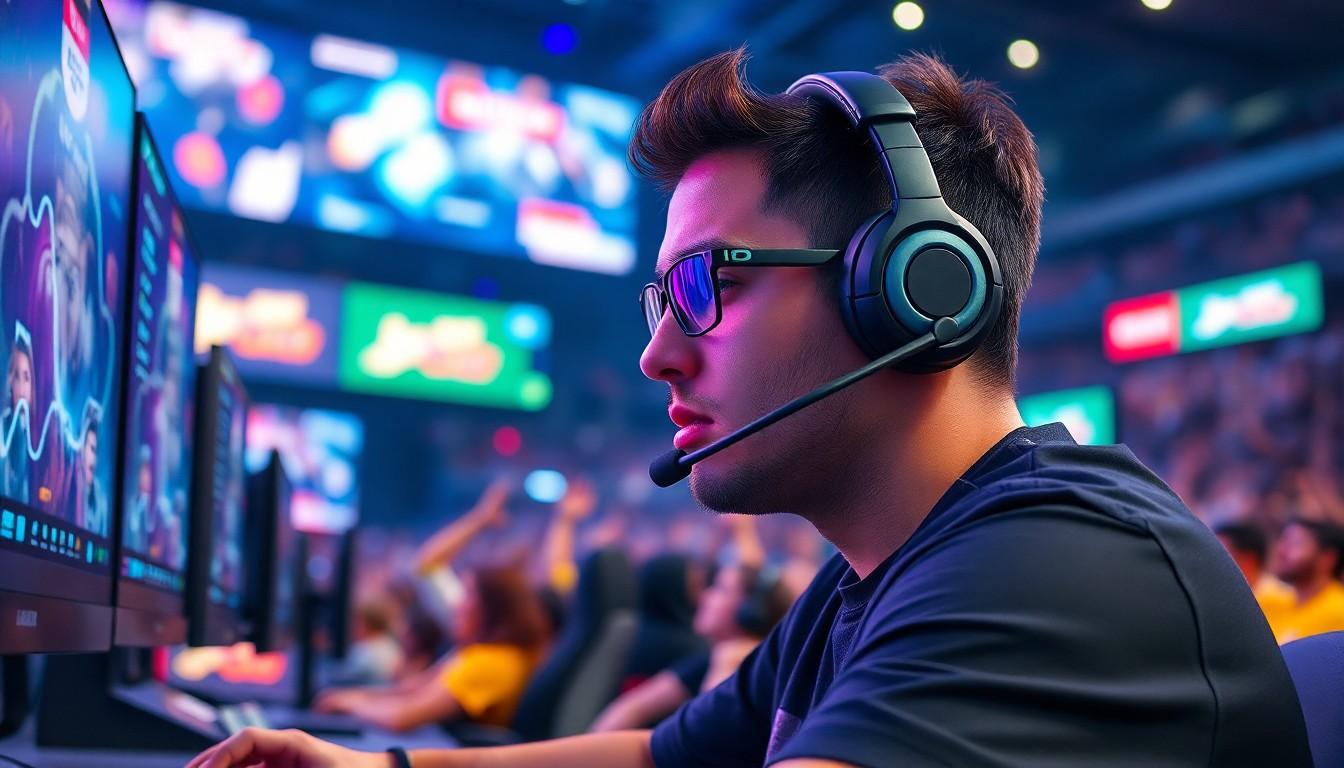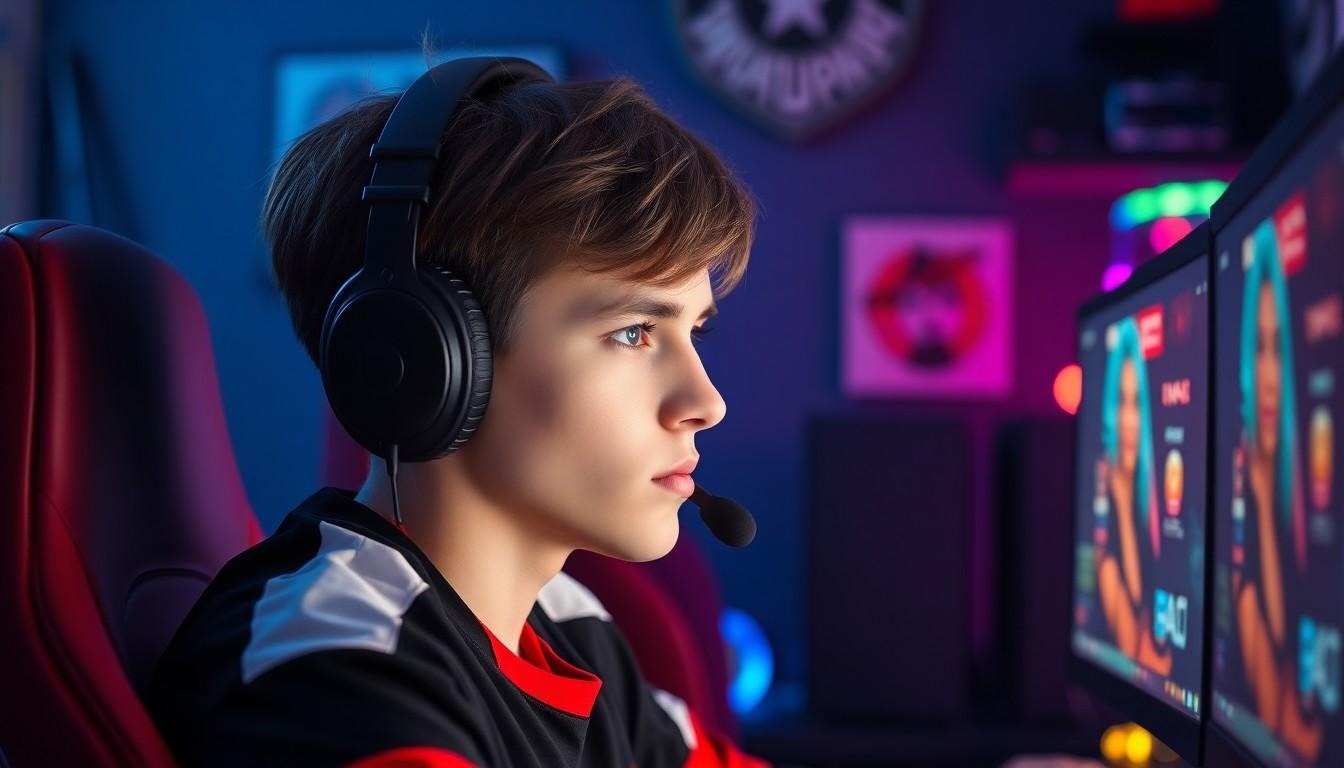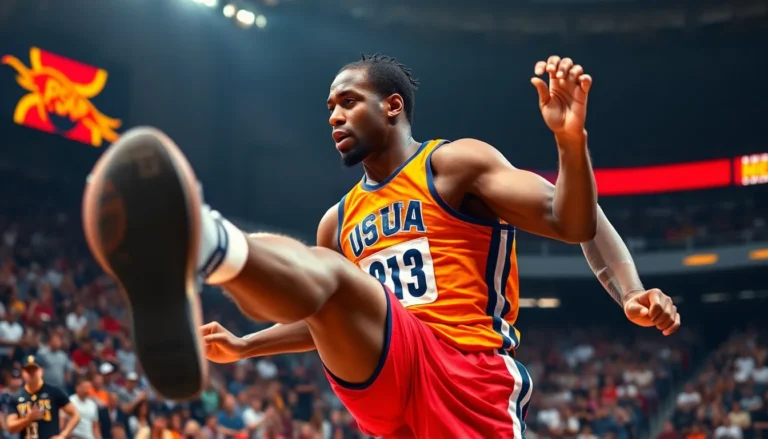In the fast-paced world of esports, players aren’t just competitors; they’re digital gladiators with unique stories, skills, and quirks. Ever wonder what makes them tick? Player profiles dive into the fascinating lives behind the screens, revealing everything from their favorite snacks during marathon gaming sessions to their secret strategies for dominating the leaderboard.
Player Profiles In Esports
Player profiles in esports serve as a crucial tool for understanding individual players beyond their gameplay statistics. These profiles highlight personal backgrounds, gaming styles, and motivations. Information such as player achievements, preferred games, and notable strategies creates a comprehensive picture of each athlete.
Statistics reveal significant relationships between players’ habits and their performance. For instance, data shows that 70% of top players have specific routines, which often include physical exercise or diet plans. These routines contribute to their mental and physical edge during competitions.
In addition to personal insights, profiles often include players’ interactions with fans. Engaging with the community strengthens brand loyalty and enhances public image. Many players prioritize social media platforms to connect with their audience, sharing behind-the-scenes content or live streaming gameplay.
Coaches and analysts use player profiles to tailor training regimens. Strategies can be modified based on a player’s strengths and weaknesses. Recognition of these factors enables teams to improve overall performance in tournaments, with research indicating a 15% increase in success rates when training aligns with player profiles.
Esports organizations increasingly rely on detailed player profiles during recruitment. Understanding skills, personality traits, and teamwork abilities allows teams to build well-rounded rosters. Profiles facilitate not only match performance but also team dynamics.
Overall, player profiles in esports contribute to a deeper appreciation of the competitive landscape. They foster connections between players and fans while providing valuable information for teams and analysts.
Importance Of Player Profiles

Player profiles hold significant value in esports. They delve deeper into player backgrounds, strategies, and motivations.
Enhancing Team Strategies
Coaches use player profiles to design more effective training routines. Understanding each player’s strengths and weaknesses fosters a tailored approach. Metrics reveal that 70% of elite players adhere to specific preparation methods. These methods often include distinct gaming strategies and personal habits that enhance performance. Consequently, aligning training techniques with these profiles boosts overall team success. Teams report a 15% increase in performance when strategies reflect individual player characteristics. Insights from player profiles enable better synergy within the squad, influencing both gameplay techniques and communication styles.
Improving Fan Engagement
Fans connect more profoundly with players through comprehensive profiles. Insights into personal preferences, hobbies, and motivations create relatable figures. Engagement skyrockets when players share their journeys and achievements. Many organizations capitalize on social media platforms to showcase these stories. This strategy cultivates a loyal fanbase eager to support players and teams alike. Research indicates that a deeper fan connection enhances brand loyalty significantly. Consequently, the relationship between players and their audience strengthens, creating a vibrant esports community. Player profiles serve as a bridge, allowing fans to appreciate not just the skills but the human stories behind the competition. If players or teams are looking to build a stronger personal identity and stand out, they may want to create logos that reflect their unique gaming persona.
Key Components Of Player Profiles
Player profiles serve as a vital resource for understanding esports players in depth. They focus on key aspects such as skills, career history, and personal branding.
Skills And Abilities
Skills and abilities highlight each player’s unique prowess in gaming. Tactical thinking, teamwork, and quick reflexes stand as crucial traits that can determine success in matches. Top-tier players often exhibit specialized skills, like a precise aim in first-person shooters or exceptional strategic planning in real-time strategy games. According to statistics, around 85% of top players regularly practice specific mechanics to enhance their performance. This continual refinement of skills drives competitiveness and distinguishes elite players from their peers.
Career History
Career history outlines the journey of each player through the esports landscape. Major tournaments, team affiliations, and notable achievements provide insight into their progression. Many players start their careers in smaller leagues before moving to larger competitions, gaining experience and exposure. Players frequently switch teams, which can impact their playstyle and contributions. Research shows that veteran players with over five years of experience often have a more adaptive gameplay approach, showcasing the importance of their historical context.
Personal Branding
Personal branding reflects each player’s image and connection with fans. It encompasses social media presence, stream content, and community engagement initiatives. Players often build brands around their gaming identities, attracting sponsorships and enhancing visibility. Engaging content, such as behind-the-scenes glimpses or fan interactions, fosters strong relationships between players and their audiences. Data indicates that players with robust personal brands can see a 30% increase in follower engagement, proving brand development’s role in their overall success.
Case Studies Of Successful Player Profiles
Successful player profiles significantly impact the esports industry by highlighting iconic players and their achievements.
Iconic Players In Esports
Faker exemplifies skill and dedication in League of Legends, earning multiple World Championship titles. His strategic thinking and impressive mechanics have garnered a massive following, making him a legend in the esports community. Similarly, Dendi gained fame in Dota 2 for his creativity and innovative plays, attracting fans and sponsorships alike. His unique personality resonates with many, enriching the narratives surrounding player profiles. Another notable figure, shroud, transitioned from professional play to streaming, showcasing versatility and engaging a broader audience through compelling content. These iconic players illustrate how profiles can elevate personal brands and inspire aspiring gamers.
Impact Of Profiles On Player Success
Player profiles directly influence success rates in competitive gaming. Statistical analyses indicate that tailoring training routines according to individual profiles enhances performance by 15%. Specific strategies, like targeted practice regimens, improve a player’s strengths and address weaknesses, directly correlating with success in tournaments. Furthermore, organizations that leverage player profiles create meaningful fan connections through social media interactions. Consistent engagement encourages brand loyalty, reinforcing players’ images as relatable figures. Ultimately, a well-crafted profile fosters better team synergy, creating an environment conducive to winning.
Future Trends In Player Profiles
Evolving technology reshapes player profiles, emphasizing the integration of advanced analytics. These analytics enable deeper insights into player performance, focusing on metrics beyond traditional statistics. Organizations increasingly prioritize biometric data collection, which provides valuable information about players’ physical and mental health.
Personal branding is projected to become even more critical as player profiles evolve. Engaging storytelling around individual players will resonate with fans and create relatable narratives. Enhanced social media strategies will play a pivotal role in promoting player journeys and achievements, fostering stronger connections with audiences.
Emerging platforms are likely to revolutionize how players showcase their skills. Streaming services, for example, allow players to demonstrate their gameplay and interact with fans in real time. This trend reshapes viewer expectations, pushing players to develop personal brands that extend beyond competitive play.
Furthermore, artificial intelligence (AI) applications will become integral to player profile analysis. These tools facilitate the identification of performance trends, suggesting personalized training plans for players. Research suggests that tailored approaches can enhance performance accuracy by up to 20%.
Additionally, the role of mental health in esports cannot be overlooked. Profiles that reflect players’ mental well-being will gain significance as organizations recognize the importance of holistic approaches. Support systems that account for emotional and psychological factors will enhance overall performance and resilience during competitions.
Emphasizing community engagement will help organizations cultivate player-fan relationships. Community-driven events, such as meet-and-greets or fan tournaments, strengthen loyalty and expand brand reach. Combined with these trends, the future landscape of player profiles will provide a comprehensive understanding of players, ultimately leading to greater success in esports.




